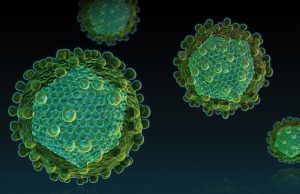Antiviral Drugs Accelerate Transplants for Patients With HCV

The success of antiviral drugs in treating hepatitis C virus (HCV) infections may significantly expand transplant options for patients with the virus by increasing the use of HCV-positive donor organs—a practice that shortens the transplant wait by several years.
Nephrologists and transplant specialists warn, however, that the option is not commonly used and may not be fully accepted or understood outside of transplant centers.
Since 2014, the Duke Division of Abdominal Transplant Surgery has transplanted nearly 30 HCV-positive kidneys into patients infected with the virus. Antiviral treatment begins after the post-transplant clinical course has stabilized. Among the patients who are HCV positive and have received a transplant at Duke, approximately 95% have shown no detectable virus following treatment.
“The key development is the availability of therapies that may mitigate the risks of receiving an HCV-positive organ,” says Scott L. Sanoff, MD, a Duke kidney transplant specialist. “The deceased-donor population that is positive for HCV has a prevalence of about 4% in the current environment. Those organs are significantly underused.”
Patients with HCV who are candidates for kidney transplantation may wait only 3 to 6 months if they accept an HCV-infected donor organ. The mean wait time for a healthy kidney transplant in the United States is 4 to 5 years. High mortality rates caused by opioid and drug-related overdoses have increased the number of healthy, HCV-positive organs, often from young donors.
The decision to transplant an HCV-positive organ must be reached after “thoughtful, patient-centered discussions,” cautions Carl L. Berg, MD, a hepatologist in Duke’s abdominal transplant surgical division. “Successful treatment requires a systematic approach following transplant.”
Nephrologists treating patients with chronic kidney disease or end-stage renal disease (ESRD) who do not work regularly with a transplant program may not be aware of the option. “A nephrologist should encourage a patient to explore listing for a HCV-positive donor organ with their transplant center when appropriate to the case,” Sanoff says. “We have seen an extraordinary reduction in wait time. In some cases, patients have been transplanted days to weeks after being placed on the wait list.”
Patients with HCV and ESRD receiving dialysis should be evaluated first for transplant prior to treating the infection, Berg adds, because of the abundance of HCV-positive donor organs. If such a patient is a candidate for transplant, then it may well be desirable not to cure their HCV before transplant.
Before the availability of the newer-generation oral antivirals, first-line medical therapies for HCV infection required the use of interferon and ribavirin, but both drugs were poorly tolerated, particularly in patients with ESRD. Patients experienced flu-like symptoms or hemolytic anemia. Those drugs were also used after transplant to treat HCV infection, but their use increased the risk of transplant rejection and caused problematic adverse events.
Although cost remains a concern, antivirals are taken orally and are generally well tolerated. Approximately 10 antiviral drugs are available, including combination ledipasvir/sofosbuvir, paritaprevir, and several others.
“The field has undergone a quantum shift in care algorithms during the past 3 to 4 years,” says Berg. “Everything we knew before is probably no longer true with the new direct-acting antiviral agents. Previously, we tried to cure before transplant, even though the therapy presented challenges.”